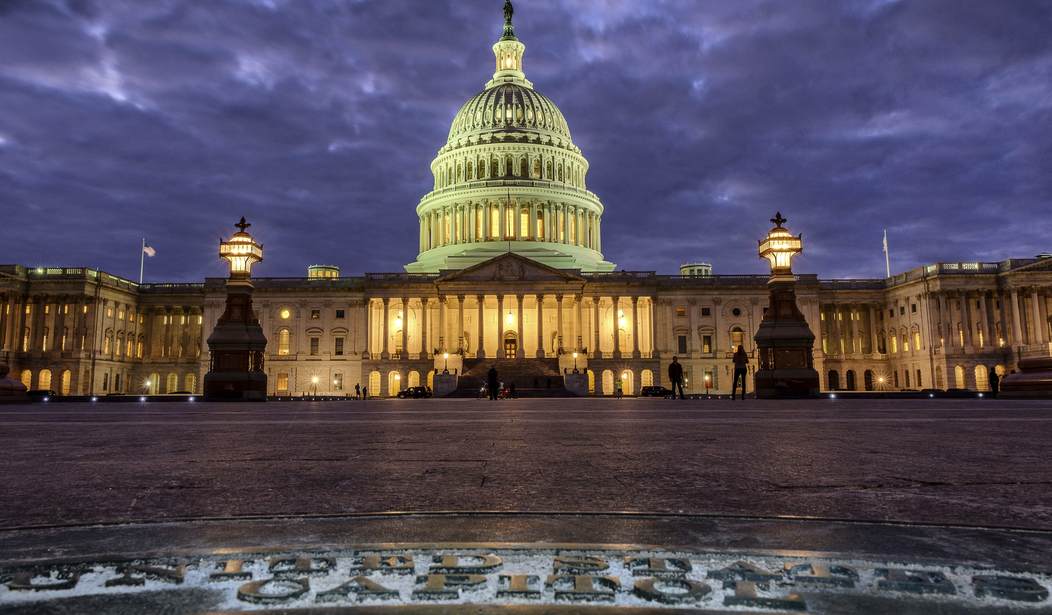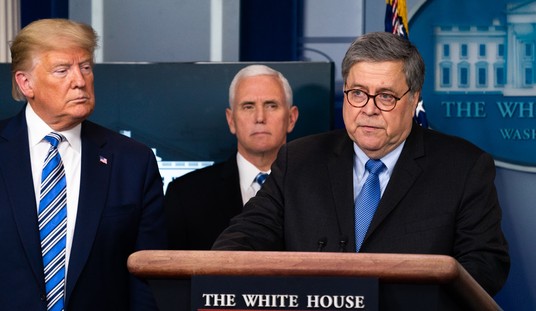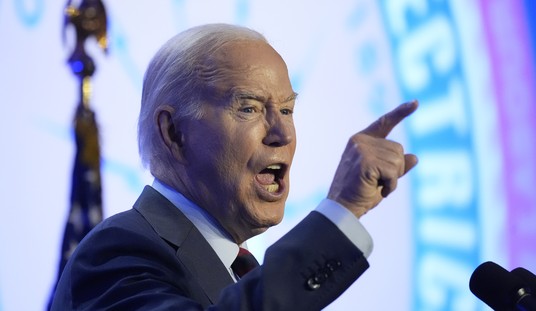The Mueller investigation into foreign collusion in the 2016 presidential election may set off a chain reaction that threatens the way Washington does business. The New York Times reports that in going after Trump, the special prosecutor opened a whole can of worms for the lobbyists.
In an indictment that seized the attention of the capital’s K Street lobbying corridor, Gregory B. Craig, a White House counsel in the Obama administration, was charged on Thursday with lying to the Justice Department and concealing information about work he did in 2012 for the government of Ukraine.
The indictment of Mr. Craig, 74, stemmed from an investigation initiated by the office of the special counsel, Robert S. Mueller III.
The charges represented a continuation — and an expansion — of a new focus on a long-neglected law governing foreign influence operations in the United States, which the Justice Department has begun prioritizing in part because of scrutiny related to Mr. Mueller’s investigation.
The weaknesses of Washington go beyond the particular cases of Craig and Manafort. The career Tony Podesta exemplifies how extensive the foreign presence D.C. has become. “In 1988 Tony and John Podesta founded Podesta Associates … By 2015, the Podesta Group was the third largest in Washington D.C. … The firm had a number of foreign governments as clients, including the Kingdom of Saudi Arabia, the Republic of Iraq and the government of South Sudan.”
According to The Wall Street Journal, Podesta’s lobbying firm performed well in 2015, because clients believed that he had access to a future Hillary Clinton administration. In the 2016 presidential election, he raised money for Clinton. Fundraising records show that over the course of a decade Podesta and his wife Heather donated more to the Democratic Party and its candidates than any other lobbyists … In 2017, Tony Podesta came under scrutiny for failing to disclose the extent of his political work for a Ukrainian group tied to both adviser Paul Manafort and to the pro-Russian Ukrainian President Viktor Yanukovych in 2012.
Foreign entities seek entry at all levels. A 2016 New York Times article described how “as chief of staff and counselor to Hillary Clinton at the State Department, Cheryl D. Mills worked ceaselessly to help a South Korean garment maker open a factory in Haiti … despite criticism of its labor record elsewhere. … During Ms. Mills’s tenure at the department, Mr. Kim’s company, Sae-A, became a donor to the Clinton Foundation.”
“Foreign powers” may now come in the guise of companies. The Lawfare Blog notes that “the Justice Department filed two notices under Section 1806(c) in the Huawei case … we learned that the U.S. government at some point had obtained FISA surveillance orders targeting both companies”.
[T]hat means that the government first had to go to the Foreign Intelligence Surveillance Court (FISC) to show not merely that a purpose of the collection would be foreign-intelligence gathering but also that there is probable cause to believe that the specific target of the collection was a “foreign power” or an “agent of a foreign power.”
It’s not just companies. Ever since Sept 11, 2001, there’s been a growing fear that religious organizations can act like “foreign powers.” The Islamic Association of North America (IANA) “formally joined the USCMO, in effect, the U.S. branch of Erdogan’s pro-Muslim Brotherhood Justice and Development Party … just months after Ilhan Omar, state representative of Minnesota” met with Turkish prime minister Recep Tayyip Erdogan in New York.
The real takeaway of the Mueller investigation is that Washington is honeycombed with foreign influencers not just in the Trump campaign or Hillary’s, but pretty much everywhere. The Free Beacon points out, “China is mining intelligence from an estimated 23 million records of American federal workers, including intelligence and security personnel, stolen in cyberattacks against the Office of Personnel Management” with the end in view of subverting them.
The OPM hack was considered one of the most damaging breaches of personnel security for the U.S. government ever. The operation by China took place in 2014 and was discovered in June 2015. China’s role was kept secret during the Barack Obama administration.
The first official confirmation that China’s government carried out the cyberattacks was made by White House National Security Adviser John Bolton in September.
The office is the repository of federal government personnel records, including social security numbers and documents known as SF-86s that contain personal information about people who apply for security clearances.
As the Lawfare Blog pointed out, “in December 2015, the Washington Post reported that the government was sending notifications to journalists who ‘have or once may have had access to federal buildings’ to alert them that their personal information could have been compromised.”
OPM Chief Information Officer Donna Seymour acknowledged that the information compromised in the data breach included “SF-86 data as well as clearance adjudication information.” This was a particularly dismaying disclosure … The full breadth of the security clearance data at risk remains unclear. For instance, U.S. officials have “neither confirmed nor denied” whether OPM’s database was linked with Scattered Castles, the intelligence community’s database of “sensitive clearance holders” …
To make matters worse, it appears that OPM maintained an unsecured and unencrypted database for the security clearances … Along with the aforementioned databases, the OPM systems are linked electronically to other agencies and databases, and it stored much of this data alongside the security clearance files.
This is conceivably the biggest headline that never was; quite a feat in a period when intelligence disasters included Snowden, WikiLeaks-Manning, the roll-up of the CIA network in China, missing the rise of ISIS and the burning of the U.S. diplomatic stations in Benghazi. When you combine the litany of disasters with what we now know about lobbying for foreign governments in Washington, it’s probable that collusion has been out of control for some time. It’s a design defect. D.C. was meant to be a national capital not the ‘capital of the world’ which it has now become. The federal bureaucracy, the press corps and its defensive agencies were designed for more homogenous national age. They seem unable to cope with the corrosion of the global world.
Washington’s networks of trust are too weak to guarantee adequate integrity or competence by themselves. Katherine Archuleta, the director of OPM, may never have been up to the job. She “previously served as National Political Director for Obama’s 2012 reelection campaign. Prior to that, she had been Executive Director of the National Hispanic Cultural Center Foundation in New Mexico, had co-founded the Latina Initiative, had worked at a Denver law firm, and had worked in the Clinton Administration as chief of staff to the Secretary of Transportation, Federico Peña.” None of this prepared her for Chinese hacking. Obama spokesman Josh Earnest noted she did not have the “particular expertise” for the position to which she had been appointed.
The Mueller investigation underscores the need to convert as many of these vulnerable segments as possible into trustless systems. The term is something of a misnomer. A ‘trustless’ system still relies on trust, just not in parties trusting each other but in the system itself.
When we talk about trustless systems, we mean that our ability to trust it does not depend on the intentions of any particular party, which could be arbitrarily malicious … trustless systems are not new. For example, email can not be trusted to protect your content for unintended eavesdropping. Yet, this presents little problem to those familiar with modern cryptography. An encrypted message can be safely sent through an untrusted channel… cryptography answers the needs of trust of safety.
The basic idea behind such systems is that it should be possible to independently verify a transaction to reduce the necessity of blind confidence. The two other properties of such system are safeguards against inventing out of nothing (the trust of issuance) and that the law is achieving its objects in a consistent way (the trust of correctness). From that POV, the investigation into the Steele dossier is a problem of issuance, while the FARA crisis is a crisis of correctness, a principal-agent problem.
Many of the weaknesses of the status quo can be at least ameliorated by intelligent reforms incorporating the latest concepts of information theory. Before Washington became the political capital of the world, the political parties and the newspapers provided adequate levels of safety, issuance, and correctness. Now it needs an upgrade. The upheaval of 2016 and the inquiries into the origins of the failed collusion investigation show that while the political system can still resolve conflicts it can only do so at the cost of a crisis. Washington has to find ways of transparently logging foreign influence, securing data, and using better methods of verifying that political promises are kept. The politicians and media men can’t do it any more without some system help.
Follow Wretchard on Twitter
Tipjar at wretchard.com
Support the Belmont Club by purchasing from Amazon through the links below.
Books:
Waterloo: The History of Four Days, Three Armies, and Three Battles, by Bernard Cornwell. This book, published to coincide with the battle’s bicentennial in 2015, is a riveting nonfiction chronicle of Napoleon’s last stand. Through quotes from the letters and diaries of Emperor Napoleon, the Duke of Wellington, and the ordinary officers and soldiers, Cornwell brings to life how it actually felt to fight those famous battles — as well as the moments of amazing bravery on both sides that left the actual outcome hanging in the balance until the bitter end.
The Last Valley: Dien Bien Phu and the French Defeat in Vietnam, by Martin Windrow. Published in 2004. Much-acclaimed first new account of the battle since the 1970s, and the most complete account to date, incorporating much new material from French and Vietnamese sources, including veteran interviews. In December 1953, French paratroopers, who had been searching for the elusive Vietnamese army, were quickly isolated by them and forced to retreat into their jungle base – a small place called Dien Bien Phu. The Vietnamese besieged the French base for five long and desperate months. Eventually, the French were utterly depleted and withdrew in defeat, the first defeat of modern Western forces by an Asian guerrilla army.
Unmasking the Administrative State: The Crisis of American Politics in the Twenty-First Century, by John Marini (author) and Ken Masugi (editor). This book tells the critical missed story of the last century’s political history: the ascendance of the theory behind a burgeoning administrative state that has supplanted limited constitutional government with an unbounded anti-constitutional bureaucracy.
Atomic Habits: An Easy & Proven Way to Build Good Habits & Break Bad Ones, by James Clear. This book offers a proven framework for improving everyday.
For a list of books most frequently purchased by readers, visit my homepage.
Did you know that you can purchase some of these books and pamphlets by Richard Fernandez and share them with your friends? They will receive a link in their email and it will automatically give them access to a Kindle reader on their smartphone, computer or even as a web-readable document.
The War of the Words, Understanding the crisis of the early 21st century in terms of information corruption in the financial, security and political spheres
Rebranding Christianity, or why the truth shall make you free
The Three Conjectures, reflections on terrorism and the nuclear age
Storming the Castle, why government should get small
No Way In at Amazon Kindle. Fiction. A flight into peril, flashbacks to underground action.
Storm Over the South China Sea, how China is restarting history in the Pacific.;









Join the conversation as a VIP Member